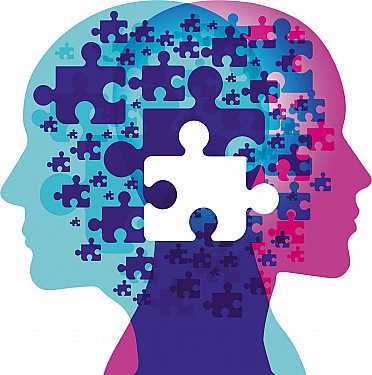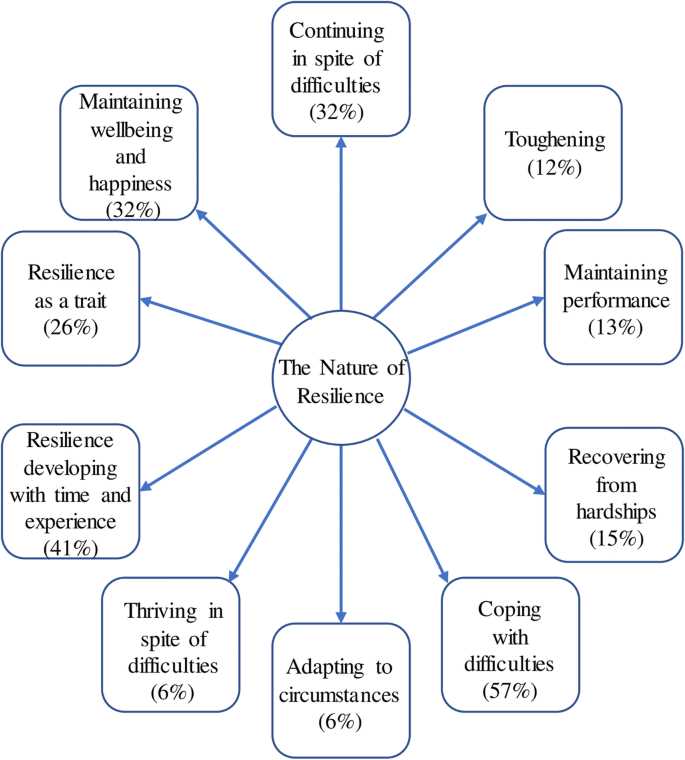
Endurance is a fundamental aspect of human nature, allowing us to overcome obstacles and adapt to challenging circumstances. However, when faced with chronic extreme stress, our mental and physical health can suffer. Chronic stress refers to ongoing, long-term stress that persists for an extended period of time, often without any relief or respite. This type of stress can have a profound impact on our well-being, affecting our ability to cope and thrive.
Resilience, on the other hand, is the ability to bounce back and recover from adversity. It is a psychological strength that enables individuals to withstand and adapt to difficult life experiences. Building resilience is crucial when facing chronic extreme stress, as it helps to mitigate the negative effects and promotes overall well-being.
Chronic extreme stress can take a toll on both our mental and physical health. It can lead to a range of issues, including anxiety, depression, insomnia, and even chronic illnesses such as cardiovascular disease. The constant activation of the body’s stress response system can have detrimental effects on various systems in the body, including the immune, digestive, and cardiovascular systems.
Coping with chronic extreme stress requires a multi-faceted approach. Developing healthy coping mechanisms, such as engaging in regular exercise, practicing mindfulness and relaxation techniques, and seeking social support, can help to alleviate the negative effects of stress. Additionally, focusing on self-care and prioritizing activities that bring joy and fulfillment can contribute to building resilience and promoting overall well-being.
In conclusion, understanding the impact of chronic extreme stress is crucial for maintaining our mental and physical health. By building resilience and adopting healthy coping mechanisms, we can navigate the challenges of life with greater ease and adaptability. Prioritizing self-care and seeking support when needed are essential steps in fostering resilience and promoting a healthier, more balanced life.
The Effects of Chronic Extreme Stress

Chronic extreme stress can have a profound impact on both mental and physical health. The human body is designed to adapt and endure short-term stressors, but when stress becomes chronic and extreme, it can overwhelm the body’s coping mechanisms and lead to a range of negative effects.
One of the most significant effects of chronic extreme stress is the toll it takes on mental health. Individuals experiencing chronic extreme stress may develop symptoms of anxiety, depression, and other mental health disorders. The constant state of stress can impair cognitive function, making it difficult to concentrate, remember things, and make decisions.
Chronic extreme stress can also have a detrimental effect on physical health. It can weaken the immune system, making individuals more susceptible to illnesses and infections. It can also lead to chronic inflammation, which has been linked to a variety of health conditions, including heart disease, diabetes, and autoimmune disorders.
Resilience plays a crucial role in determining how individuals respond to chronic extreme stress. Those with high levels of resilience are better able to adapt and bounce back from stressful situations. They have the ability to maintain a positive outlook, seek support, and engage in healthy coping mechanisms.
Building resilience is essential for individuals facing chronic extreme stress. This can involve developing healthy habits such as regular exercise, adequate sleep, and a balanced diet. Engaging in activities that promote relaxation and stress reduction, such as meditation or yoga, can also be beneficial.
In conclusion, chronic extreme stress can have a profound impact on both mental and physical health. It is essential to recognize the signs and symptoms of chronic extreme stress and take steps to build resilience and engage in healthy coping mechanisms. By doing so, individuals can better navigate the challenges of chronic extreme stress and protect their overall well-being.
Mental Health Consequences

Chronic extreme stress can have a profound impact on mental health, affecting a person’s coping mechanisms, resilience, and overall well-being. The human mind and body are designed to adapt to stress to a certain extent, but when faced with continuous and intense pressure, the effects can be detrimental.
The extreme and prolonged exposure to stress can lead to various mental health consequences. Individuals may experience symptoms such as anxiety, depression, and post-traumatic stress disorder (PTSD). These conditions can significantly impair a person’s daily functioning and quality of life.
Stress can also affect a person’s ability to cope with challenges and setbacks. It can weaken their resilience, making it harder to bounce back from difficult situations. This can further exacerbate mental health issues and hinder the individual’s ability to adapt and thrive in the face of adversity.
Furthermore, chronic extreme stress can take a toll on a person’s physical health. The constant activation of the body’s stress response system can lead to various health problems, including cardiovascular issues, compromised immune function, and gastrointestinal disorders.
Building resilience is crucial for maintaining mental health in the face of chronic extreme stress. Resilience refers to the ability to adapt and bounce back from adversity. Developing and strengthening resilience can help individuals better withstand the challenges of extreme stress and maintain their mental well-being.
It is important to prioritize mental health and seek appropriate support and resources when dealing with chronic extreme stress. This may include therapy, counseling, self-care practices, and stress management techniques. By prioritizing mental health and building endurance, individuals can better navigate the challenges of extreme stress and protect their overall well-being.
Physical Health Consequences

Chronic extreme stress can have profound physical health consequences, impacting various aspects of the body’s functioning. Resilience, coping, and adaptation play crucial roles in mitigating these effects.
One of the primary physical health consequences of chronic extreme stress is the toll it takes on mental well-being. The mind and body are interconnected, and prolonged exposure to extreme stress can lead to mental health disorders such as anxiety and depression. These conditions can further exacerbate the impact of stress, creating a vicious cycle.
Another area affected by chronic extreme stress is the body’s endurance and overall health. The constant activation of the body’s stress response system can lead to increased blood pressure, heart rate, and cortisol levels. Over time, these physiological changes can contribute to the development of cardiovascular diseases, such as hypertension and heart disease.
Additionally, chronic extreme stress can impair the immune system, making individuals more susceptible to infections and illnesses. The body’s ability to fight off pathogens and maintain optimal immune function is compromised, leading to a higher risk of chronic diseases and slower healing processes.
Furthermore, chronic extreme stress can disrupt sleep patterns, leading to insomnia and sleep disturbances. Lack of sleep not only affects mental well-being but also has a direct impact on physical health. Sleep deprivation can weaken the immune system, increase the risk of obesity, and impair cognitive function.
In conclusion, chronic extreme stress can have significant physical health consequences, affecting mental well-being, cardiovascular health, immune function, and sleep patterns. It is essential to prioritize resilience-building strategies and coping mechanisms to mitigate the long-term impact of stress on overall health.
Social and Interpersonal Consequences

Endurance of chronic extreme stress can have significant social and interpersonal consequences. The mental strain caused by ongoing stress can affect an individual’s ability to form and maintain healthy relationships. The constant pressure and anxiety can lead to irritability, mood swings, and difficulty in regulating emotions, which can strain friendships, romantic partnerships, and familial bonds.
The impact of chronic stress on mental health can also manifest in social withdrawal and isolation. Individuals may feel overwhelmed and find it challenging to engage in social activities or maintain their usual level of social interaction. This withdrawal can further exacerbate feelings of loneliness and contribute to a decline in overall well-being.
Coping and adaptation strategies are essential in mitigating the negative social consequences of chronic extreme stress. Developing healthy coping mechanisms, such as seeking support from friends and family, engaging in stress-reducing activities, and practicing self-care, can help individuals maintain social connections and prevent isolation. Additionally, seeking professional help, such as therapy or counseling, can provide individuals with the necessary tools to navigate the social and interpersonal challenges associated with chronic stress.
It is important to recognize that chronic extreme stress can impact not only an individual’s mental health but also their physical health. The toll that prolonged stress takes on the body can result in weakened immune systems, increased susceptibility to illness, and a higher risk of developing chronic health conditions. These physical consequences can further hinder social interactions and contribute to a decreased quality of life.
In conclusion, the social and interpersonal consequences of chronic extreme stress are significant. It is crucial to prioritize mental and physical health and implement strategies to build resilience and cope with the challenges that arise from enduring prolonged stress. By doing so, individuals can improve their overall well-being and strengthen their social connections.
Building Resilience to Chronic Extreme Stress

Chronic extreme stress can have a profound impact on an individual’s mental and physical health. The constant pressure and demands can lead to a variety of negative outcomes, including anxiety, depression, and physical ailments. However, it is possible to build resilience and adapt to these challenging circumstances.
Resilience is the ability to bounce back and recover from difficult experiences. It involves developing coping mechanisms and strategies to manage stress and maintain a sense of well-being. Building resilience requires endurance and a commitment to self-care.
One key aspect of building resilience is recognizing and acknowledging the impact of chronic extreme stress. It is important to understand that stress is a normal part of life, but chronic stress can be detrimental to health. By acknowledging the presence of stress, individuals can take steps to manage and reduce its impact.
Another important factor in building resilience is developing effective coping mechanisms. This may involve seeking support from friends, family, or professionals, as well as engaging in activities that promote relaxation and stress reduction. Techniques such as mindfulness, deep breathing exercises, and physical activity can all help to alleviate the effects of chronic extreme stress.
Building resilience also requires a focus on self-care. This includes prioritizing sleep, nutrition, and exercise, as well as engaging in activities that bring joy and fulfillment. Taking time for oneself and engaging in activities that promote relaxation and self-reflection can help individuals build endurance and maintain a sense of well-being in the face of chronic extreme stress.
In conclusion, chronic extreme stress can have a significant impact on an individual’s health and well-being. However, by building resilience and adapting to these challenging circumstances, individuals can mitigate the negative effects and maintain a sense of well-being. Through recognition, effective coping mechanisms, and a commitment to self-care, individuals can build endurance and thrive in the face of chronic extreme stress.

I am Patrina de Silva, a psychologist and mental health blogger in Sri Lanka. After obtaining psychology degrees from the University of Colombo and Monash University, I returned home to work as a counselor while also starting the popular blog “Pressy but Happy” to provide advice on psychological issues. Over the past decade, my empathetic articles have made my blog a leading mental health resource in the country. In addition to writing, I maintain a private therapy practice, frequently volunteer counseling time, and conduct seminars, driven by my passion for destigmatizing mental illness and educating the public on the mind-body connection. I strive to be an influential voice in my field through my compassionate approach.
